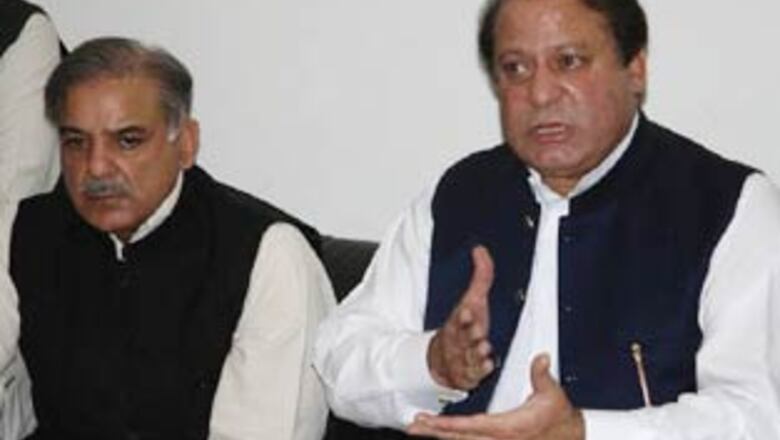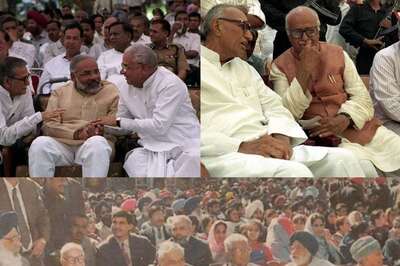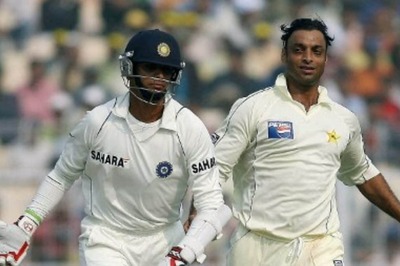
views
Islamabad: Shahbaz Sharif of the Pakistan Muslim League-Nawaz (PML-N) returned in triumph as the chief minister of Pakistan's politically most crucial Punjab province after the Supreme Court on Monday stayed its order barring him and elder brother Nawaz Sharif from contesting polls or holding public office.
"The Supreme Court has suspended its February 25 order," lawyer Zafar Ali Shah told reporters after the ruling by a bench headed by judge Tassaduq Hussain Jilani that is hearing the Pakistani government's appeal against the order.
Sharif would serve as the Chief Minister till the court passes a final order in the case, Jilani added.
Analysts here described this as a mere formality, saying the order would not have been stayed if there was no possibility of it being overturned.
Prime Minister Yusuf Raza Gilani congratulated Sharif on his restoration, expressing the hope that all political parties would now work together for the coun'ry's interest and promote the policy of reconciliation.
The government's appeal on the Sharif brothers was seen as the second of Gilani's fence-mending measures after Nawaz Sharif led a high-voltage lawyer's stir in mid-March to protest the poll bar and to demand the reinstatement of sacked chief justice Iftikhar Mohammad Chaudhry and the other Supreme Court and high court judges then president Pervez Musharraf had dismissed after imposing an emergency Nov 3, 2007.
The government initially talked tough, warning the lawyers they would not be permitted to enter Islamabad but buckled in March 16 after the agitation threatened to spin out of control.
Chaudhry got his job back March 22, the same day Gilani and Nawaz Sharif met over lunch at the latter's country's villa on Lahore's outskirts.
The duo is believed to have discussed the modalities of the PML-N's return to Gilani's Pakistan Peoples Party-led federal coalition.
The two parties had formed the coalition, along with two smaller parties, after their one-two finish at the February 2008 general elections.
The PML-N, however, walked out after PPP co-chair and now Pakistani President Asif Ali Zardari reneged on the governance agenda that had been agreed on before the general elections that were originally scheduled for January 2008 but were pushed back after the assassination December 27, 2007 of Zardari's wife and former prime minister Benazir Bhutto.
PAGE_BREAK
Bhutto and Nawaz Sharif had agreed on the governance agenda October 2007.
Now, with the contentious issue of the judges' reinstatement out of the way, Shahbaz Sharif back in office and the government agreeing to repeal the controversial 17th amendment, the way is clear for the PML' return to the federal government.
Musharraf had pushed the amendment through in 2003, transferring key powers to the presidency from the prime minister's office. These powers relate to the appointment of the service and the chief justice, as also to dismissing the federal and provincial governments, as also parliament and the provincial assemblies.
Shahbaz Sharif's return has also raised a question mark over the future of Punjab Governor Salman Taseer's future. He is known to be a Zardari acolyte and it was widely believed that he was appointed to destabilise the provincial government.



















Comments
0 comment